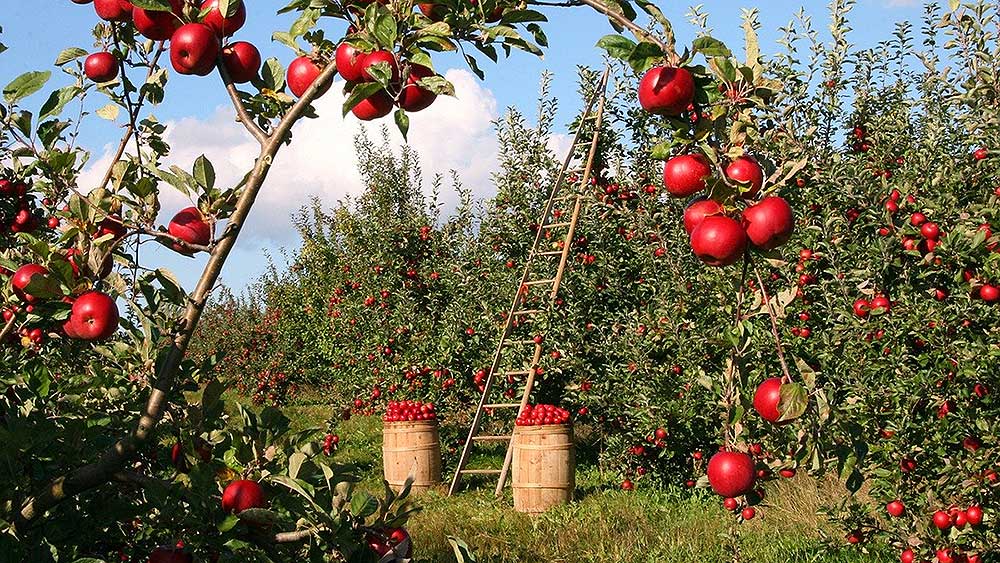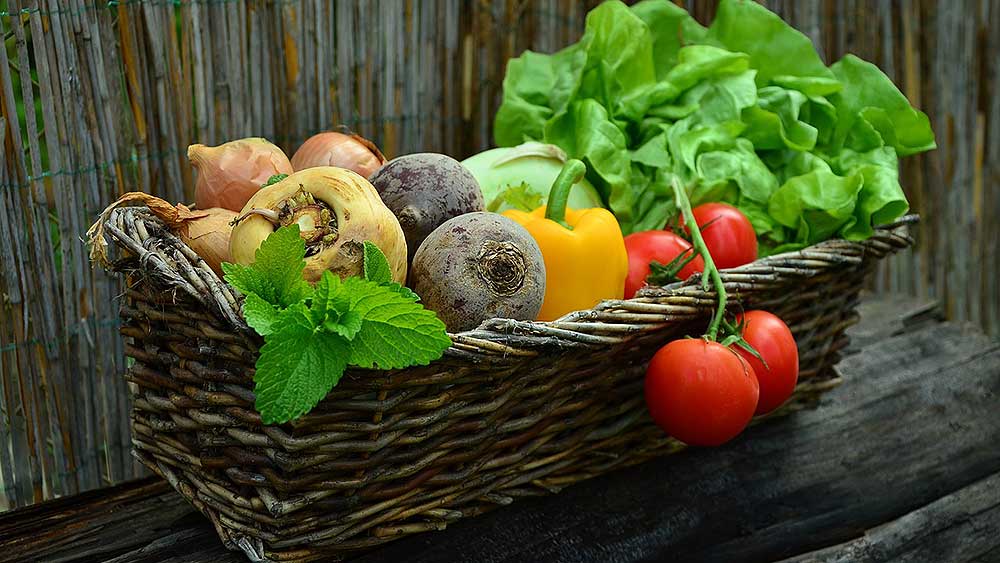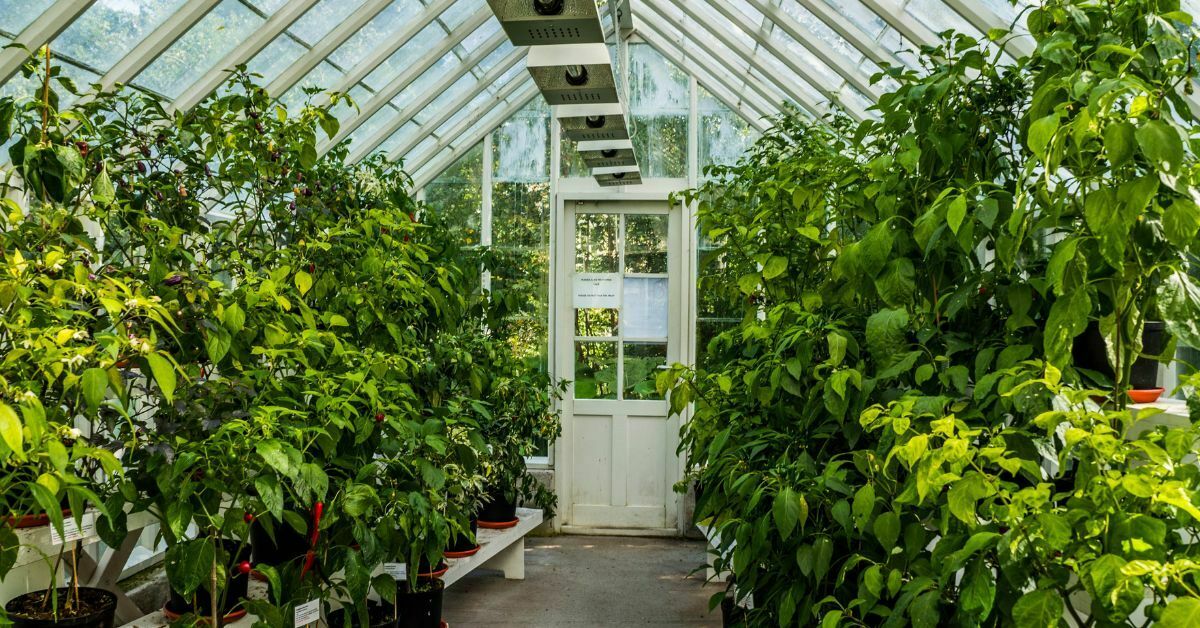Having a highly productive vegetable garden helps you gain as much food as possible out of it no matter what size is the field is. There might be several reasons why you want to take this step to maximize your yields. You might simply plan to feed your household for your garden year-round, or you might even like to set up a miniature farm standing by the mailbox for supplemental income, sell a few vegetables at your local farmers’ market or coordinate a community garden.
How To Be A High Productive Vegetable Gardener
Drawing from our backgrounds in small and large-acreage farming, as well as in backyard gardening, we’ve taken the systems and practices that successful, professional growers use every day and adapted them for use at the scale of a home garden. Using these techniques to manage your garden as a professional small farmer will dramatically increase its gains while maintaining soil fertility and your sanity. We call this approach high-producing vegetable gardening.

You might also like this: Vegetable gardening for June
The Basic Principles of High-Productive Gardening
Acquiring a profound comprehension of the fundamental principles that underpin the optimal productivity of a garden constitutes the preliminary stride one must undertake in the pursuit of cultivating a highly productive horticultural space.
Once these foundational tenets have been discerned and grasped with certainty, a significant advancement is made toward the establishment of efficacious systems that are poised to facilitate the attainment of utmost yields. In order to extract the utmost potential from your garden, it is imperative to accord utmost importance to the following indispensable guidelines:
Choose The Most Applicable Location And Use It Efficiently.
Thinking ahead and placing annual and ongoing crops in the most appropriate areas is essential for getting the maximum productivity out of your garden. For most climates and crops, more sun is always better. Organize your garden to maximize effective space, and figure out innovative solutions for spaces outside of the main vegetable field. Keeping a productive garden space requires using non-garden spaces in support roles.
Plan Well And Record Regularly.
Spend time before each season to make a complete plan of the garden. Update the plan during the season as you make necessary revisions. Maintain an accurate record of these garden tasks, as well as what happens in the garden, and use this information to inform future plans.
Know Your Plants.
In order to maximize the yield of your cultivated crops, it is essential to cultivate a comprehensive comprehension of the intricate interplay between the physiological mechanisms, genetic traits, and cultural requisites of the plants in question.
By delving into the intricacies of your crops’ biology and characteristics, you pave the way for informed decision-making and the implementation of targeted strategies aimed at augmenting their productivity. Naturally, a deeper understanding of your crops empowers you with the knowledge and insights necessary to optimize their growth and enhance their overall output.
Select Quality Crops.
The judicious selection of crops and specific cultivars that demonstrate commendable adaptability to your prevailing climate conditions, coupled with a well-suited choice for the particular season at hand, stands as a crucial determinant in the pursuit of a highly productive garden.
Optimal outcomes are more likely to be achieved when you deliberately opt for varieties that exhibit robust growth, remarkable productivity, and, equally importantly, align with your personal preferences in terms of taste and culinary preferences.
By exercising discernment and selecting crops and cultivars that possess these desirable attributes, you position yourself favorably for a bountiful harvest and an enhanced gustatory experience.
Determine Your Purpose For Growing.
Prioritizing the contemplation of your project’s objectives constitutes a prudent course of action. Deliberate thought should be given to growing crops that align with your preferred flavors and culinary inclinations, while also taking into account the yields that would be most practical and useful for your purposes.
Ensuring that each crop serves a designated purpose and is imbued with a preconceived application before being sown into the earth safeguards against wastefulness and enhances the efficiency of your gardening endeavors.
By thoughtfully considering the intended utilization of each crop, you establish a cohesive and purpose-driven garden, where every plant serves a deliberate role in contributing to your overarching goals.
Observe And Respond.
Undoubtedly, you, as the cultivator, hold the paramount role as the most reliable and continuous source of valuable information pertaining to your own garden. Maintaining a meticulous record of the performance of various plant varieties and diligently noting the appearance and prevalence of pests and diseases that afflict your garden bestows upon you invaluable insights.
Such firsthand knowledge grants you the ability to tailor and fine-tune your gardening project to precisely suit the unique and specific conditions that prevail within your horticultural domain. By embracing this practice of attentive observation and documentation, you harness the power to make informed decisions, implement targeted interventions, and optimize your garden’s productivity while mitigating potential challenges or setbacks.
Your garden becomes an evolving masterpiece, shaped by your astute understanding of its idiosyncrasies, as you continually refine your strategies to harmonize with the ever-unfolding dynamics of your cultivated environment.
Maximize Your Time And Energy.

You save time and energy when you develop systems and use tools that maximize efficiency. Time is nearly always the most limited resource of the high-yield gardener, so be sure to make the most of it.
Maintain Fertile Soil.
The wisdom echoed by accomplished growers, who emphasize the primacy of caring for the soil rather than solely focusing on the crops themselves, carries profound significance. The continuous and conscientious nurturing of the soil in your garden stands as an indispensable cornerstone of successful cultivation.
Recognizing the importance of soil amendment, it is essential to undertake this practice several times throughout the year. By regularly replenishing and enhancing the soil’s composition, structure, and nutrient content, you fortify its fertility and vitality, paving the way for optimal plant growth and abundant yields.
This ongoing commitment to soil care signifies a holistic approach to gardening, acknowledging the vital symbiosis between the earth beneath and the flourishing vegetation above.
By bestowing consistent attention and intentional amendments upon the soil, you lay the groundwork for a resilient and thriving garden ecosystem, fostering a harmonious relationship between the earth, the plants, and the gardener.
Water Regularly And Sufficiently.
The vitality and productivity of vegetable plants are intrinsically linked to the provision of consistent and sufficient water. Implementing a meticulously managed watering regimen emerges as a critical responsibility in your gardening endeavors.
It is imperative to attentively monitor and control the watering process, for by the time discernible signs of water stress manifest themselves, the potential yield of your crops may have already been compromised.
The importance of preemptive action cannot be overstated, as timely and appropriate irrigation practices ensure that plants receive the necessary hydration to thrive, thus optimizing their growth and overall productivity.
By diligently attending to the water needs of your vegetable plants, you not only mitigate the risk of diminished yields but also cultivate a garden that is imbued with robustness, vitality, and the potential for an abundant harvest.
Extend The Seasons, But Also Expand Them.
To optimize the potential of your garden, it is advisable to create dedicated spaces within your horticultural domain that effectively extend the planting and harvest periods, providing opportunities for earlier and later season cultivation.
By thoughtfully designating specific areas, you unlock the ability to maximize the use of your garden throughout the year. Furthermore, by implementing the practice of succession planting, you can ensure a continuous rotation of crops, strategically utilizing each space to grow multiple varieties over time.
This methodical approach allows you to harness the full potential of your garden, extending its productivity and diversifying the range of crops you can cultivate, resulting in a rich and abundant harvest.
Deal With Pests, Diseases, And Weeds Immediately.
Maintaining a vigilant and regular monitoring routine for your garden is paramount to its overall health and vitality. By closely and frequently observing your garden, you empower yourself to promptly address any emerging issues, such as harmful pests, diseases, or other detrimental factors that may jeopardize its well-being.
This proactive approach enables you to swiftly implement necessary interventions and mitigate potential damage, ensuring the continued success and resilience of your garden. By remaining attentive and vigilant, you safeguard the optimal conditions for your plants to thrive, fostering an environment that nurtures their growth and safeguards against potential threats.
Harvest And Store Crops Smartly.
A key aspect of cultivating crops is having a comprehensive understanding of the appropriate stage for harvest, as well as the necessary post-harvest care to uphold their maximum quality and storage life. By accurately determining the ideal moment for harvesting, you can ensure that your crops reach their peak flavor and nutritional value.
Additionally, being well-versed in post-harvest practices allows you to employ techniques that preserve the quality and extend the shelf life of your harvested produce. Moreover, constructing protective storage facilities equipped with proper air-conditioning capabilities becomes indispensable in cases where longer-term preservation is desired.
This careful attention to post-harvest management ensures that your crops remain fresh, flavorful, and accessible for an extended duration, enabling you to savor the fruits of your labor over an extended period.
You might also want to see the further information on “Tips to Make More Efficient Use of Your Garden Space”
Conclusion
In conclusion, by implementing these twelve best tips for a highly productive vegetable garden, as highlighted in our exploration of profitable gardening secrets, you embark on a journey towards cultivating a thriving and fruitful horticultural haven. Through understanding the essentials, selecting suitable crops, caring for the soil, managing water, extending planting and harvest periods, monitoring for problems, and mastering post-harvest care, you are equipped with the knowledge and expertise to optimize your garden’s productivity and yield.
By embracing these time-honored principles and strategies, you unlock the potential to create a garden that not only delights the senses but also reaps the rewards of a bountiful harvest, bringing both satisfaction and sustenance to your gardening endeavors.
May your vegetable garden flourish, and may your gardening journey be filled with fulfillment and success. Happy gardening!
FAQ
How can I ensure a highly productive vegetable garden?
To ensure a highly productive vegetable garden, it is important to focus on several key aspects. These include understanding the essentials of successful gardening, selecting suitable crop varieties for your climate and preferences, practicing proper soil care and amendment, providing consistent and adequate water, utilizing techniques such as succession planting to maximize space usage, closely monitoring for pests and diseases, and implementing post-harvest care to maintain quality and storage life.
How often should I water my vegetable garden?
The frequency of watering your vegetable garden depends on various factors such as climate, soil type, and specific crop requirements. Generally, it is recommended to water deeply and infrequently to encourage deeper root growth and reduce surface evaporation.
A good practice is to provide enough water to ensure the soil is moist to a depth of at least 6 inches. Regularly monitor the moisture level of the soil by checking its moisture content with your finger or by using moisture meters.
Adjust your watering schedule accordingly, ensuring the plants receive consistent and adequate water throughout their growth stages.
Can I store harvested vegetables for an extended period?
Yes, harvested vegetables can be stored for an extended period with proper post-harvest care and storage techniques.
Each vegetable has its own specific storage requirements, but some general guidelines include removing any damaged or diseased produce, ensuring proper cleaning and drying before storage, and storing vegetables at appropriate temperatures and humidity levels.
For longer storage, consider building protective storage spaces equipped with proper air-conditioning or utilizing techniques such as canning, freezing, or dehydration to preserve the harvested vegetables.


